Are you navigating the tricky situation of sending a late rent payment notice? You're not aloneâmany landlords find themselves in similar predicaments, and having a well-crafted letter can make all the difference in maintaining a good tenant relationship. In this article, we'll explore essential tips and a streamlined template to help you communicate effectively while remaining professional. So, if you're ready to simplify the process and ensure timely payments moving forward, keep reading!
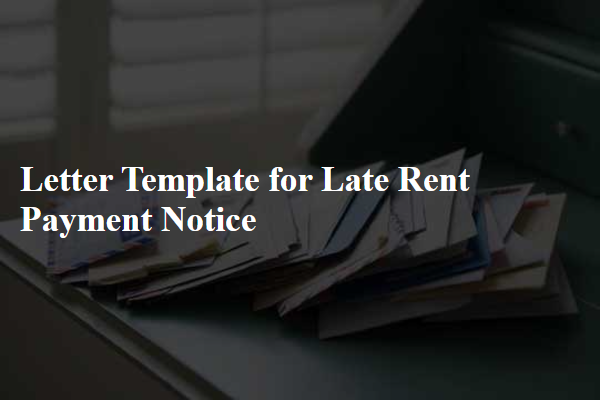
Clear explanation of late payment
Late rent payment can lead to significant issues for landlords and tenants alike. A situation may arise when a tenant, perhaps living in an apartment complex in a city like New York, misses the due date specified in the lease agreement (commonly the first of the month). This late payment, often subject to penalties, could arise from unexpected financial hardships or delays in receiving a paycheck. For instance, a tenant employed in the hospitality industry might face variable income, impacting their ability to pay rent on time. Landlords may impose late fees, typically around 5% of the monthly rent, to encourage timely payments. Additionally, continuous late payments could damage the tenant's credit score and lead to potential eviction proceedings, often conducted in local courts. Clear communication regarding late payment policies and consequences is crucial to maintaining a healthy landlord-tenant relationship and ensuring compliance with local housing regulations.
Specific amount due and due date
The tenant, John Smith, has an outstanding balance of $1,200 in rent for the apartment located at 123 Maple Street, due on September 1, 2023. This payment is crucial to maintain the landlord-tenant agreement, as timely payments ensure the property is well-managed and financial obligations are met. A late charge of $50 applies if the payment remains unpaid after a grace period of five days, putting further financial strain on both the tenant and the landlord. Failure to address this overdue amount could lead to potential eviction proceedings, resulting in a legal process that may involve the court systems in Springfield, known for attending to residential disputes efficiently.
Applicable late fees or penalties
Navigating late rent payments can be challenging for both landlords and tenants. A late rent payment notice serves as a formal reminder that rent was due, often on the first of the month, and is now overdue. Many rental agreements specify applicable late fees, which can range from $25 to approximately 5% of the total rent amount, depending on local tenancy laws. In some areas, tenants may also face penalties if rent remains unpaid after a specific grace period, typically five to ten days. Consistent late payments can potentially lead to further actions, including eviction proceedings, particularly if the lease stipulates such consequences. Communication between landlords and tenants is crucial to resolve these issues amicably while adhering to legal obligations.
Contact information for queries
Late rent payment notifications often serve as urgent reminders for tenants regarding overdue rental payments. In many jurisdictions, landlords may follow specific procedures to address this situation, which is governed by local tenancy laws. For example, a notice may include the original due date of the rent, the amount owed, applicable late fees (often around 5-10% of the unpaid rent), and the potential consequences of continued non-payment, such as eviction notices. Accurate contact information for queries is crucial; it typically includes the landlord's name, phone number (often a mobile number for immediate communication), email address, and possibly office hours for in-person discussions. This information facilitates tenant inquiries and helps resolve payment issues promptly.
Reminder of lease agreement terms
The lease agreement stipulates the payment of rent on the first day of each month, establishing expectations for tenants and landlords alike. Late payments can incur additional fees, with penalties typically set at around 5% of the monthly rent amount for each day past the due date, as outlined in the signed contract. For example, if the rent is $1,200, a late fee may accrue at a rate of $60 per day. Failure to adhere to these terms can result in further action, including potential eviction proceedings, as per local housing laws in jurisdictions such as California or New York. It is crucial for tenants to communicate any financial difficulties promptly to avoid escalation of issues related to non-compliance.

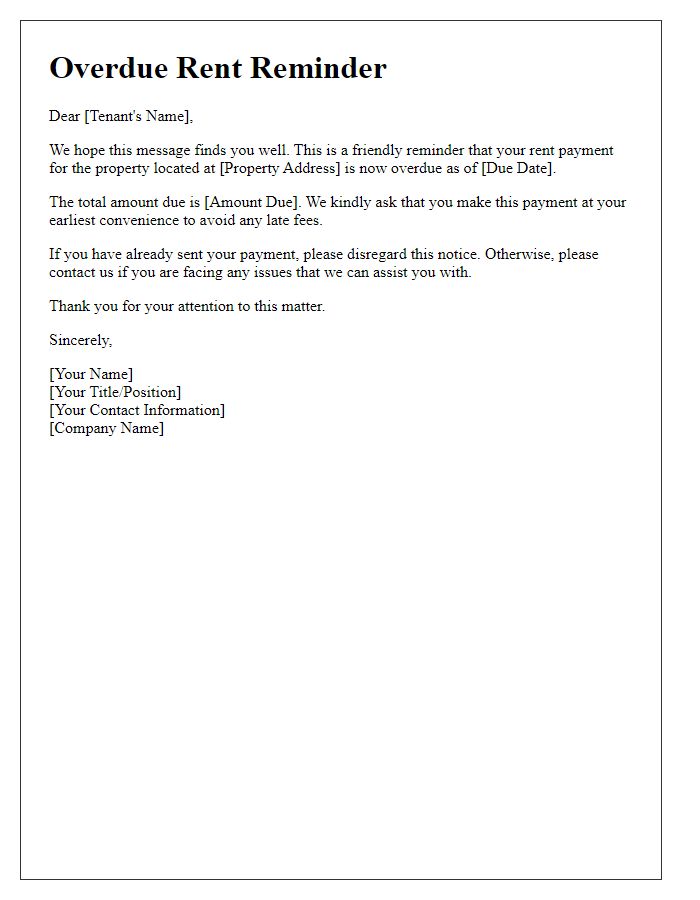
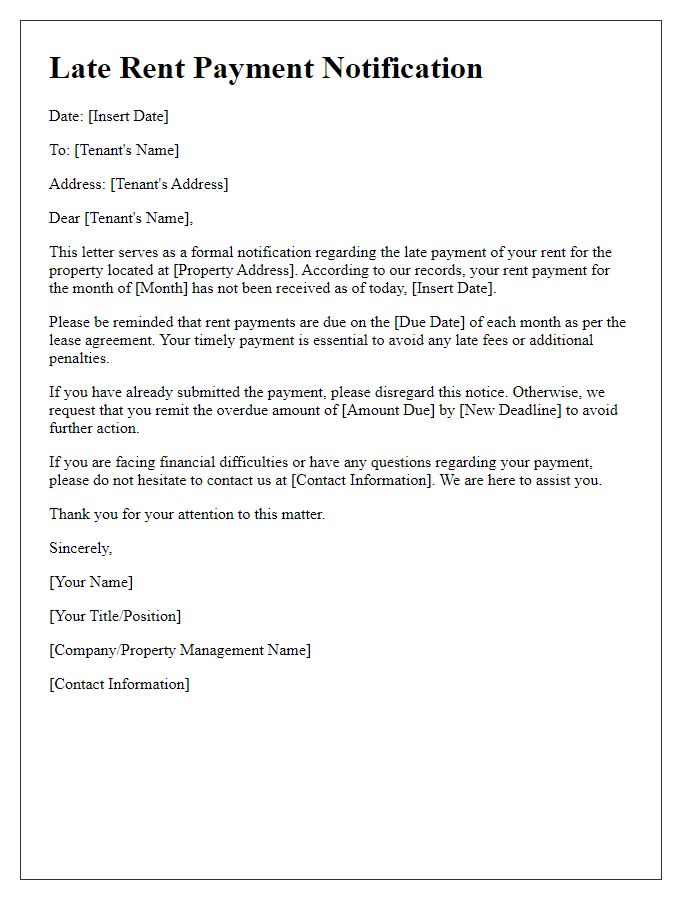
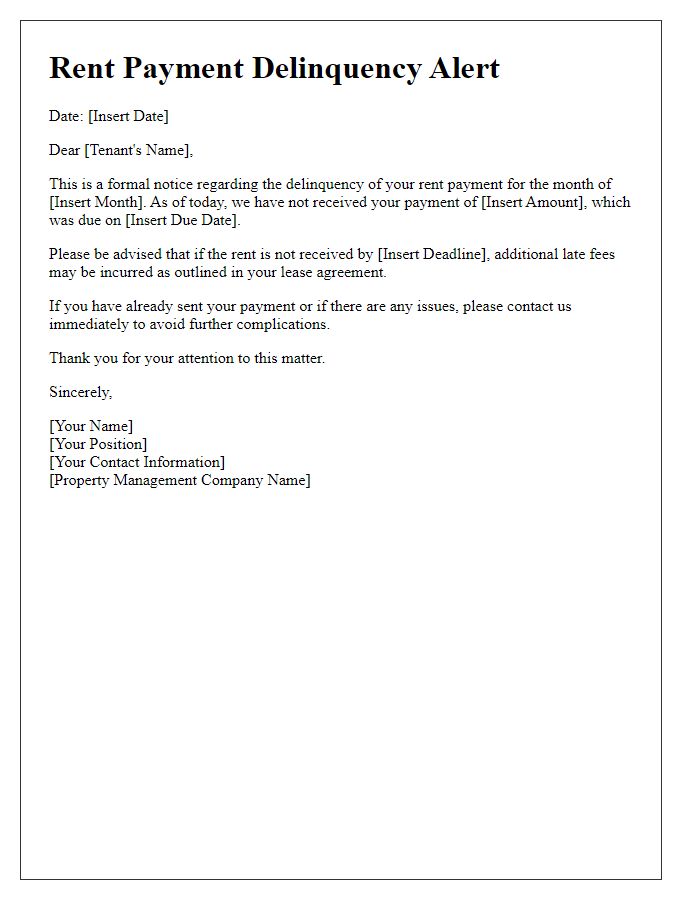
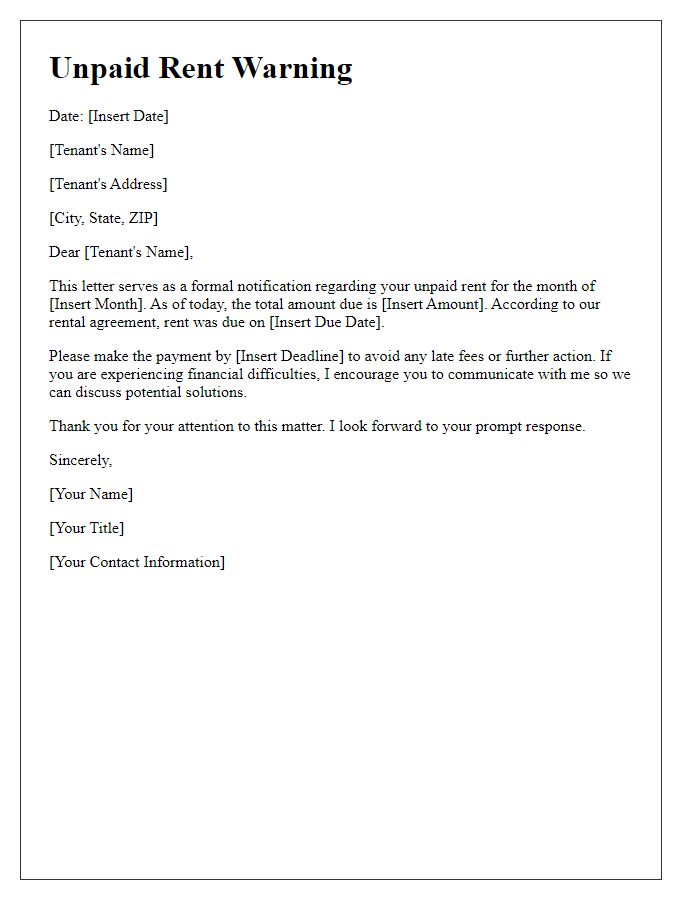
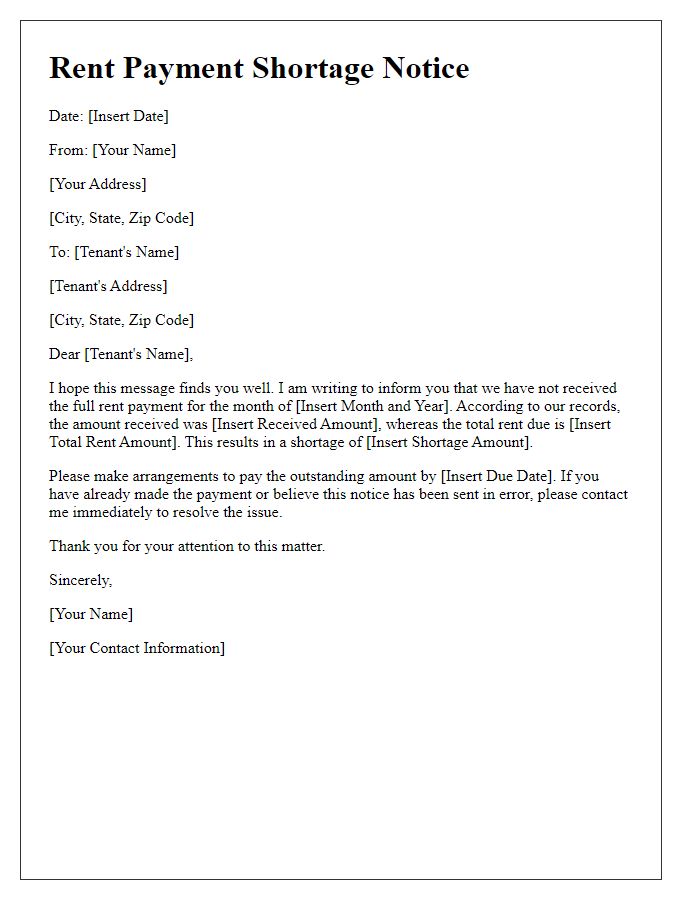
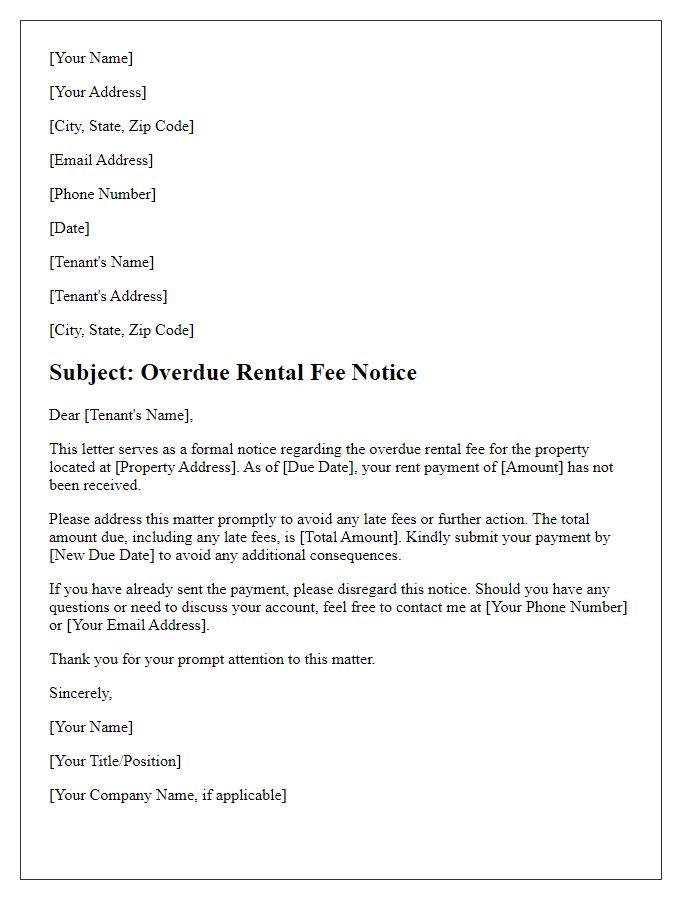
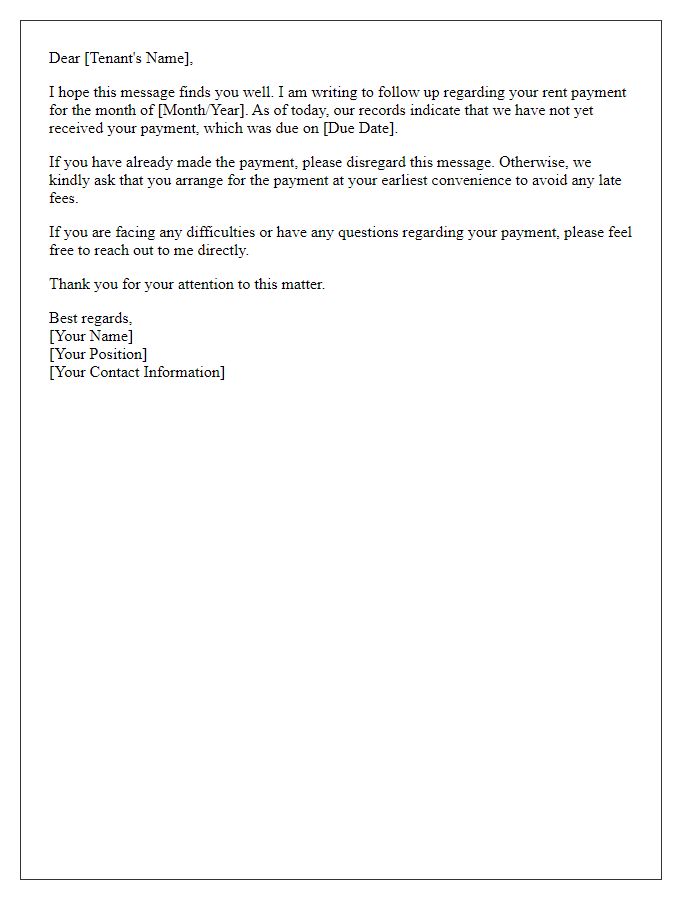
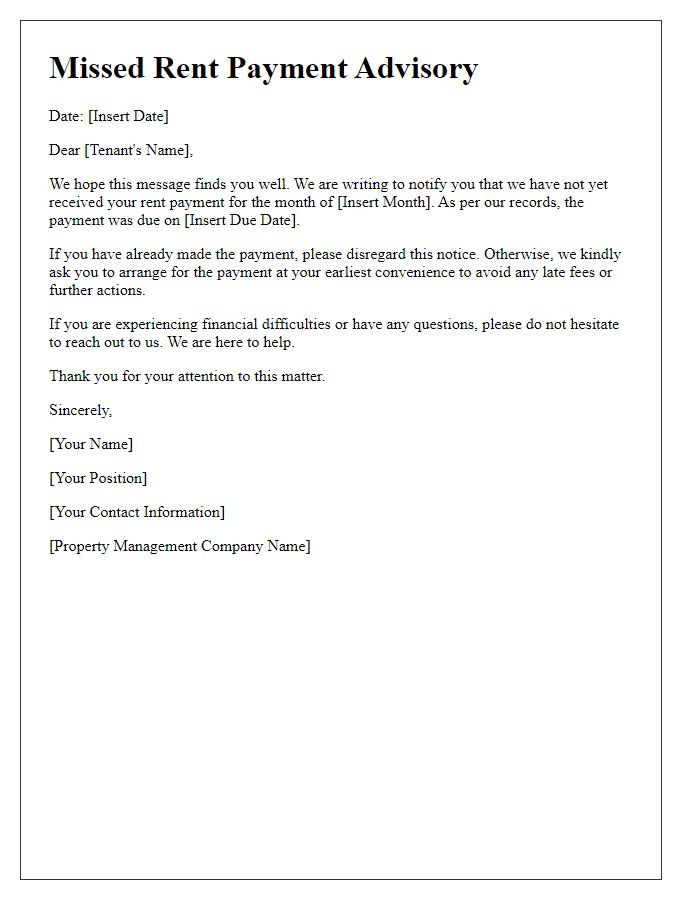
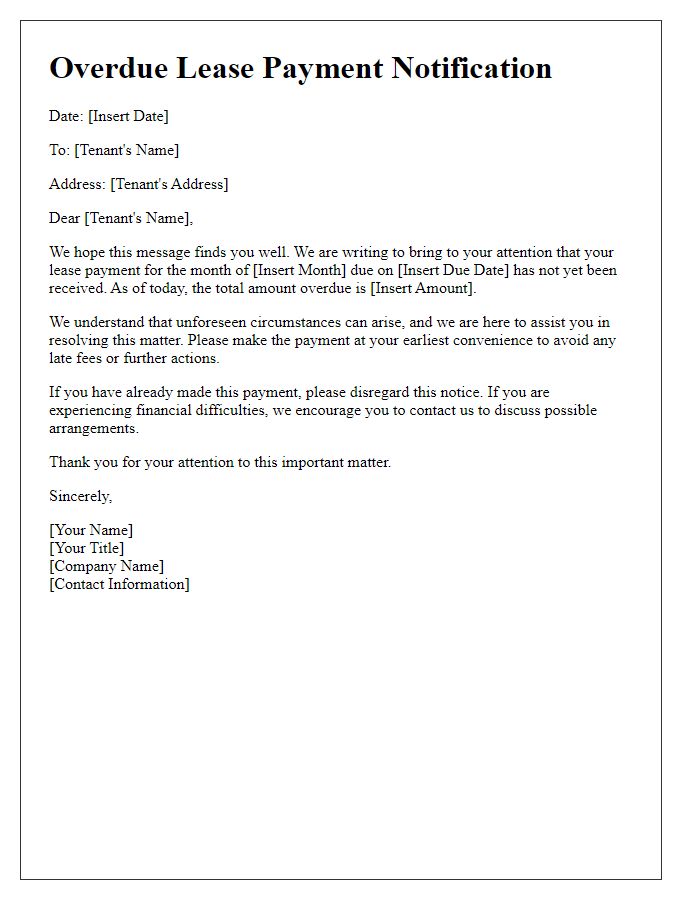
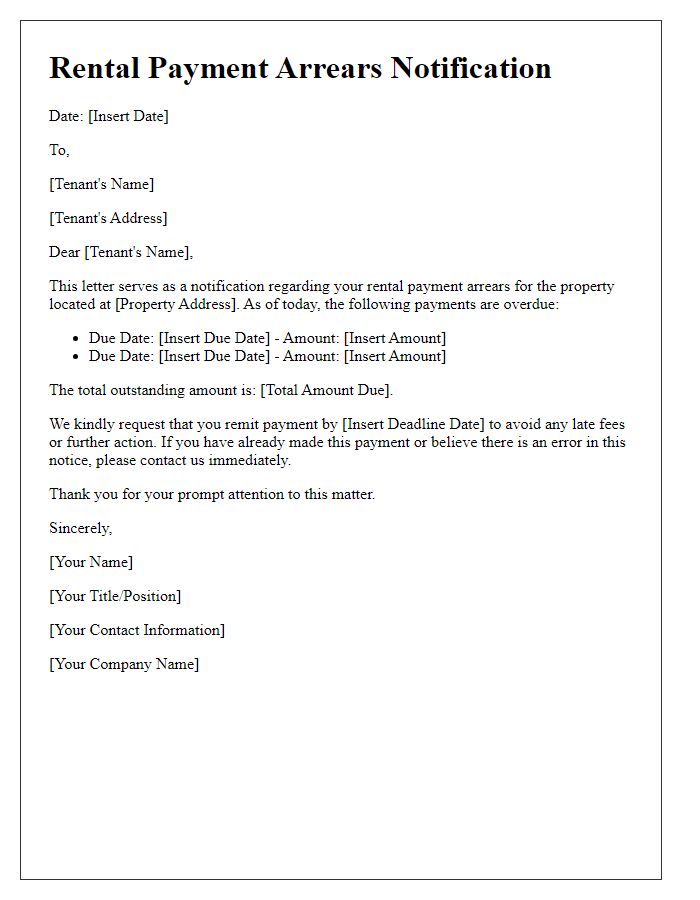

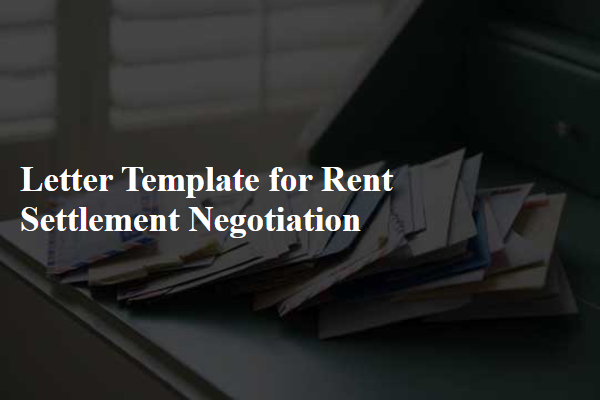
Comments